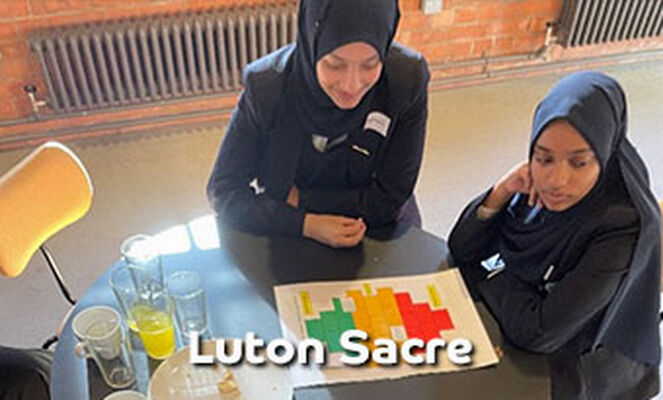Coventry University Centre for
Trust, Peace and Social Relations
Interfaith Learning in Christian
and Muslim Higher Education Colleges
The UK higher education (HE) sector sits at the crossroads of three challenges facing student cohesion:
1) Research reveals that higher education institutions (HEIs) can be sites of prejudice, particularly towards minorities;
2) Policies intended to protect students from harm, such as the 2015 Preventing Violent Extremism guidance, have inadvertently stigmatised Muslim students; and
3) Disputes around freedom of speech in HE are widespread.
Academic research has found that in the face of these challenges, students tend to segregate themselves by religion or worldview group. Moreover, whilst religious student societies are vital for nurturing religious identity and forming friendship groups, students lack the support to pursue interfaith activities (Perfect, Ryan and Aune 2019).
While researchers and practitioners have made efforts to address these issues within the context of mainstream UK universities, theological colleges remain overlooked. The power of Christian and Muslim colleges to shape our future leaders’ engagement with, and attitudes towards, religion and worldview diversity must not be underestimated.
This project thus meets an urgent need to understand how students at UK Christian and Muslim HE colleges make sense of religious diversity.
This is the first research of its kind to examine how different college climates enable or impede positive attitudes towards those of different faiths and worldview perspectives. The project does this by exploring four questions:
1) How do UK Christian and Muslim college students approach religion and worldview diversity, in terms of attitudes and behaviour?
2) How do students’ attitudes and behaviours in relation to religion and worldview diversity change during their time at UK Christian and Muslim HE colleges?
3) How do different aspects of UK theological college life affect students’ interfaith learning and development?
4) What are the implications of our learning for the future of interfaith work in UK theological colleges and other educational settings?
The project utilises survey and case study research to track students’ attitudes to religion and worldview diversity and illuminate how campus climate and religious diversity engagement influence students’ college engagement.
The project’s beneficiaries include:
a) Students, insofar as their experience of a college climate respectful of faith and faith diversity is enhanced;
b) College staff, especially those responsible for religious literacy and faith provision, including chaplains; and
c) Faith-based organisations beyond the colleges, whose interventions might benefit from research identifying facilitators and impediments to positive college relations.
The project will enable beneficiaries to better understand how to create a college climate for religious diversity, how to foster interfaith engagement and dialogue between students and between staff and students, and how to better support Christian and Muslim students (and those with other worldviews) while they study.
For more information contact the project Team:
The project’s beneficiaries include:
a) Students, insofar as their experience of a college climate respectful of faith and faith diversity is enhanced;
b) College staff, especially those responsible for religious literacy and faith provision, including chaplains; and
c) Faith-based organisations beyond the colleges, whose interventions might benefit from research identifying facilitators and impediments to positive college relations.
The project will enable beneficiaries to better understand how to create a college climate for religious diversity, how to foster interfaith engagement and dialogue between students and between staff and students, and how to better support Christian and Muslim students (and those with other worldviews) while they study.
For more information contact the project Team:
Professor Kristin Aune, Professor of Sociology of Religion
Dr Sariya Cheruvallil-Contractor, Associate Professor
Dr Lucy Peacock, Research Fellow





